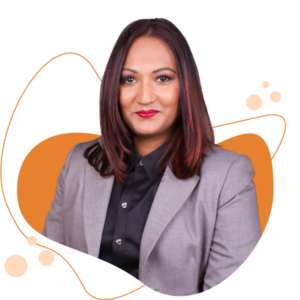Enjoy Your Retirement To The Fullest
Your Ticket To Financial Security In Retirement!
At Natasha Bridgmohan & Team, we are committed to helping seniors make the most of their retirement years. That’s why we offer reverse mortgages, a financial tool designed to help homeowners aged 62 and older access the equity in their homes without having to make monthly payments. Our team of experienced professionals is dedicated to providing personalized guidance and support to ensure that our clients fully understand the benefits and risks of this unique service.

Contact
Natasha Bridgmohan
Today For All Your Mortgage Needs.
Bridgmohan (AMP)
Reverse Mortgage Quick-Facts and Features
Tax-Free Money:
Maintain Ownership of Your Home:
Use the Money However You Wish:
Keep Your Remaining Home Equity:
Basic Qualifications:
No Repayment Required While Living in Your Home:
No Monthly Payments
With a reverse mortgage, borrowers are not required to make monthly payments. This can provide seniors with financial flexibility.
Flexible Payment Options
Borrowers can choose to receive their loan proceeds as a lump sum, a line of credit, or as monthly payments.
Retain Ownership of the Home
With a reverse mortgage, borrowers retain ownership of their home and can continue to live in the property as their primary residence.
Awards and Recognition






















Let us help you make the most of your home's equity!
FAQ's
-
● What is a residential mortgage and how does it work?
A residential mortgage is a loan that homeowners use to purchase a residential property, such as a house or a condominium. The borrower agrees to pay back the loan with interest over a set period of time, usually 15-30 years. The lender uses the property as collateral for the loan, which means that if the borrower fails to make payments, the lender can foreclose on the property.
-
● What factors affect my eligibility for a residential mortgage?
Lenders consider several factors when determining whether to approve a mortgage application, including credit score, income, employment history, debt-to-income ratio, and the amount of the down payment. A good credit score, stable income, and a low debt-to-income ratio can increase your chances of getting approved for a mortgage.
-
● What is a pre-approval for a mortgage and how does it differ from a pre-qualification?
A pre-approval for a mortgage is a preliminary evaluation by a lender of a borrower's creditworthiness, based on a thorough review of the borrower's financial history and credit report. A pre-approval usually involves a hard credit check and provides a more accurate estimate of how much a borrower can afford to borrow. A pre-qualification, on the other hand, is a less rigorous evaluation based on self-reported information provided by the borrower.
-
● What are some common mistakes to avoid when applying for a residential mortgage?
Some common mistakes to avoid when applying for a residential mortgage include applying for new credit before closing on the mortgage, making major purchases before closing, and neglecting to shop around for the best mortgage rates and terms. It's also important to review all mortgage documents carefully and ask questions if anything is unclear.
-
● How long does it take to get a residential mortgage?
The time it takes to get a residential mortgage varies depending on the lender, the complexity of the loan, and the borrower's financial situation. Generally, the process can take anywhere from 30 to 60 days, but it can be shorter or longer depending on the circumstances.